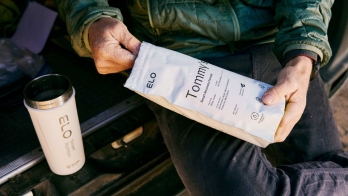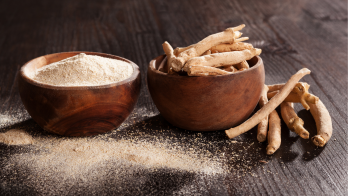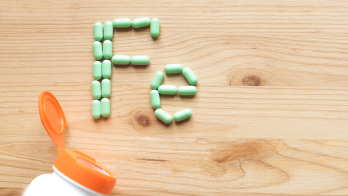How to speed up muscle strain recovery and meet your performance goals with Elo Smart Recovery
Looking to level up your fitness game? Here are the best aids for how to speed up muscle strain recovery and reach your performance goals.
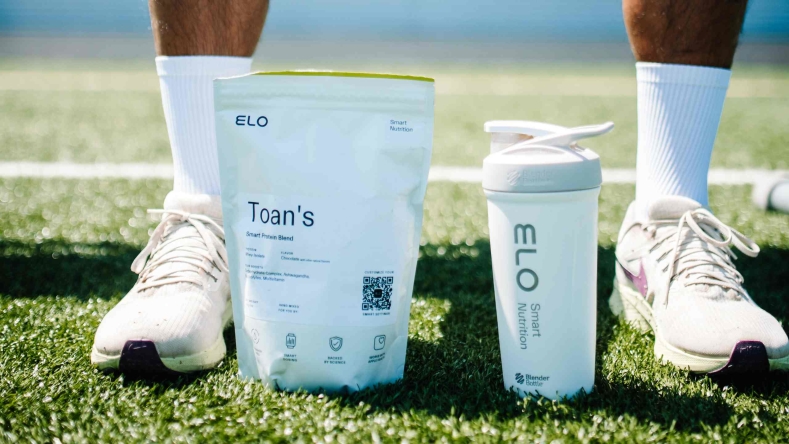
If you want to hone in on your performance goals, you may have considered adding certain muscle recovery supplements to your routine. However, exercise nutrition can get increasingly complicated, especially when you consider the more intricate details of consuming the right nutrients at the right time.
This is where Elo Health comes in–we do a deep dive into the science with your wearable data and AI technology to determine the right nutrition plan for you and your fitness goals. With Elo doing the heavy lifting, you can focus on better recovery and increased performance, knowing you’re getting the right nutrients that your body needs.
But before we dive into how to speed up muscle strain recovery with supplements and boosts, let’s briefly explain how personalized nutrition products can support your nutrition and recovery goals.
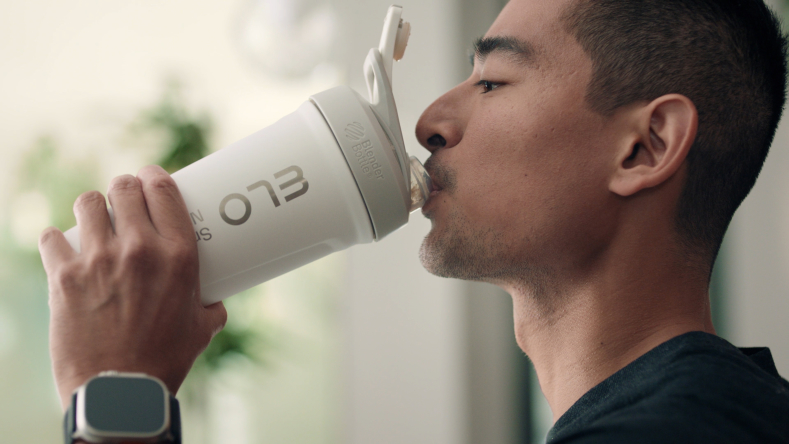
What is Elo Smart Recovery?
Elo Smart Recovery is the world’s most personalized recovery product
This product is perfect for exercise enthusiasts of any age who want to maximize post-workout recovery. Each blend is hand-mixed just for you and is optimized to deliver the right amount of protein and key amino acids after each workout to help you recover faster.
Your unique Smart Recovery blend is determined using a combination of data from wearables and activity apps, as well as your dietary preferences and goals. Your information is then matched with the latest scientific research to determine a blend of ingredients that both maximizes post-workout recovery and supports your health goals (more on that below). Learn more about how it can enhance your recovery
Try out Smart Recovery today and
get 30% off your first month with code TRY30
.
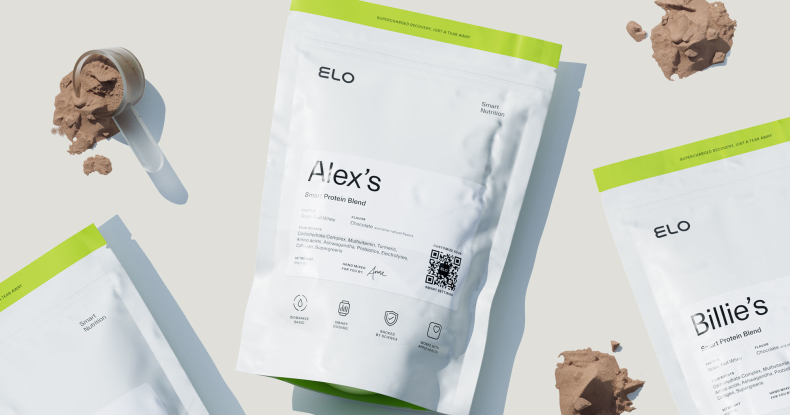
How Elo’s boosts support your recovery needs
Since we all have different nutritional needs and goals, you need a protein powder that will work for you, not against you. That’s why Elo Health provides a variety of boosts that can be added to your Smart Protein blend. Functional boosts, like supergreens, turmeric, and probiotics, can help offset nutritional gaps in your diet and support your long-term health goals. As such, your custom blend will be unique to you.
Here are all of the muscle recovery supplements and boosts that we include in our Smart Protein product to help you reach your health and performance goals.
Goal: Replenish energy
Elo boost: carbohydrate blend
Carbohydrates are the most efficient macronutrient group for working muscles because they provide quick, usable energy and help load and replenish muscle glycogen stores [ 1 2 3
At Elo, we offer two types of carbohydrates for boosts: branched cyclic dextrin and oat starch. Both types can be useful for athletes looking to replenish energy stores during and after exercise [ 4

Goal: Build and repair muscle
Elo boosts: amino acids and collagen
When it comes to building and repairing muscle, protein reigns supreme. But why is it important for recovery, and what is the reasoning behind having amino acids and collagen as boosts in Elo Smart Protein? Let’s examine what science has to say.
Protein is a macronutrient that is composed of 20 different amino acids, nine of which are considered “essential” because your body cannot produce them and, therefore, must come from your diet. Amino acids are considered the primary building blocks of your body, but the essential amino acids are particularly important for athletes since they are necessary to stimulate muscle protein synthesis–a key component to recovery after exercise [ 5 6
Check out this article to learn more about the benefits of protein for endurance athletes.
Collagen
Studies also show that collagen is beneficial in improving joint functionality, reducing joint pain, and showing improvements in body composition, strength and muscle recovery [ 7 8
You can obtain amino acids through dietary sources or from protein supplements (such as Elo Smart Protein
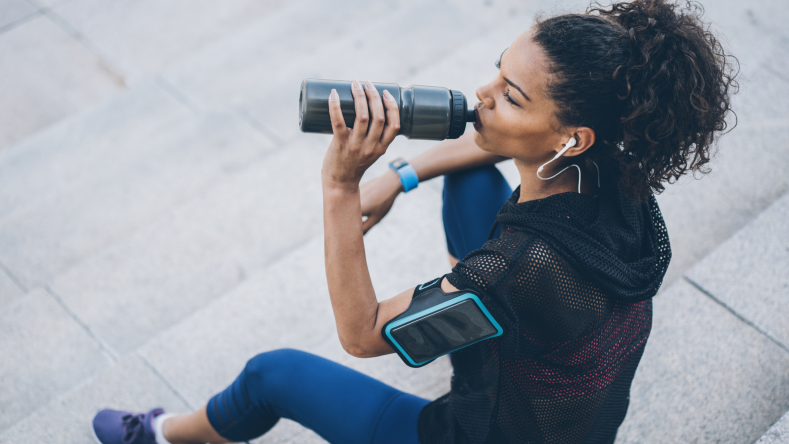
Goal: Boost hydration
Elo boost: electrolytes
Water is the most essential nutrient, so it’s important to ensure you’re getting enough fluids throughout the day (15.5 cups/day for men and about 11.5 cups/day for women). However, staying hydrated doesn’t just rely on water intake alone–electrolytes also play a vital role.
Electrolytes 9
Electrolytes are also crucial in maintaining hydration levels throughout the body by directing the flow of water into and out of cells. Because hydration is critical for performance, this is particularly important for athletes since sweat contributes to a loss of electrolytes, which can disrupt fluid balance and lead to dehydration. Exercise performance may also be impaired if complete rehydration is not achieved [ 10
In addition to hydration levels, electrolytes also play a major role in muscle function, as magnesium can promote normal muscle function, contraction, and relaxation, and may be used to treat muscle cramps [ 11
Goal: Fill nutrient gaps
Elo boosts: probiotics, turmeric, ashwagandha, multivitamin, and supergreens
These boosts can help fill nutrient gaps in your diet and provide additional support for recovery by reducing inflammation, improving digestive health, supporting immune function, and reducing stress and anxiety. Here’s a brief breakdown of why we include these boosts at Elo.
Probiotics: These are live bacteria and yeasts that help to balance the gut microbiome and improve digestive health, support immune function and reduce inflammation, all of which can aid in recovery after exercise or injury. In fact, studies have found that probiotic supplementation in combination with protein may reduce muscle damage and maintain performance [
12
].Turmeric: This spice contains curcumin (a powerful antioxidant and anti-inflammatory compound) that has been shown to support recovery, reduce inflammation, improve muscle pain and tenderness, diminish markers of oxidative stress, and reduce evidence of muscle damage [
13
].Ashwagandha: This adaptogenic herb may help to reduce stress and anxiety, improve mental and physical performance, reduce the risk of muscle damage, and increase muscle strength and endurance [
14
].Multivitamins: This supplement contains a combination of vitamins and minerals that help fill nutrient gaps in your diet to further boost health and wellness.
Supergreens: These often contain a blend of nutrient-dense greens that can offer additional support for recovery by providing antioxidants, vitamins, and minerals.
Summary
Improving your performance is more than just about training to hit a new PR; the devil is in the details when it comes to recovery strategies. While certain muscle recovery techniques are helpful, what you choose to supplement with post-workout can make or break your gains.
At Elo Health, we do the heavy lifting for you and create your own custom nutrition plan so you can focus on recovering faster and performing better. Our Smart Protein product includes a variety of boosts (such as a carbohydrate blend, electrolytes, collagen, probiotics, ashwagandha, turmeric, and a multivitamin) to help you meet your goals and further boost your health.
Disclaimer: The text, images, videos, and other media on this page are provided for informational purposes only and are not intended to treat, diagnose, or replace personalized medical care.
Key takeaways
Elo Smart Protein includes a variety of boosts (such as a carbohydrate blend, electrolytes, collagen, probiotics, ashwagandha, turmeric, and a multivitamin) to help you meet your goals and further boost your health.
Your unique Smart Protein blend is determined using a combination of data from wearables and activity apps, dietary preferences, and goals.
References
Jeukendrup A. (2014). A step towards personalized sports nutrition: carbohydrate intake during exercise. Sports medicine (Auckland, N.Z.), 44 Suppl 1(Suppl 1), S25–S33.
https://doi.org/10.1007/s40279-014-0148-z
Bussau, V. A., Fairchild, T. J., Rao, A., Steele, P., & Fournier, P. A. (2002). Carbohydrate loading in human muscle: an improved 1 day protocol. European journal of applied physiology, 87(3), 290–295.
https://doi.org/10.1007/s00421-002-0621-5
How do carbs make you less sore after a tough workout?. ISSA. (n.d.).
https://www.issaonline.com/blog/post/how-do-carbs-make-you-less-sore-after-a-tough-workout
Furuyashiki, T., Tanimoto, H., Yokoyama, Y., Kitaura, Y., Kuriki, T., & Shimomura, Y. (2014). Effects of ingesting highly branched cyclic dextrin during endurance exercise on rating of perceived exertion and blood components associated with energy metabolism. Bioscience, Biotechnology, and Biochemistry, 78(12), 2117–2119.
https://doi.org/10.1080/09168451.2014.943654
Volpi, E., Kobayashi, H., Sheffield-Moore, M., Mittendorfer, B., & Wolfe, R. R. (2003). Essential amino acids are primarily responsible for the amino acid stimulation of muscle protein anabolism in healthy elderly adults. The American journal of clinical nutrition, 78(2), 250–258.
https://doi.org/10.1093/ajcn/78.2.250
Vliet, S. V., Beals, J. W., Martinez, I. G., Skinner, S. K., & Burd, N. A. (2018). Achieving Optimal Post-Exercise Muscle Protein Remodeling in Physically Active Adults through Whole Food Consumption. Nutrients, 10(2), 224.
https://doi.org/10.3390/nu10020224
Khatri, M., Naughton, R. J., Clifford, T., Harper, L. D., & Corr, L. (2021). The effects of collagen peptide supplementation on body composition, collagen synthesis, and recovery from joint injury and exercise: a systematic review. Amino acids, 53(10), 1493–1506.
https://doi.org/10.1007/s00726-021-03072-x
Zdzieblik, D., Oesser, S., Baumstark, M. W., Gollhofer, A., & König, D. (2015). Collagen peptide supplementation in combination with resistance training improves body composition and increases muscle strength in elderly sarcopenic men: A randomised controlled trial. British Journal of Nutrition, 114(8), 1237–1245.
https://doi.org/10.1017/s0007114515002810
U.S. National Library of Medicine. (n.d.). Fluid and electrolyte balance. MedlinePlus.
https://medlineplus.gov/fluidandelectrolytebalance.html
Shirreffs, S. M., & Sawka, M. N. (2011). Fluid and electrolyte needs for training, competition, and recovery. Journal of sports sciences, 29 Suppl 1, S39–S46.
https://doi.org/10.1080/02640414.2011.614269
Magnesium, a treatment for leg cramps?. NPS MedicineWise. (2014, February 27).
https://www.nps.org.au/news/magnesium-a-treatment-for-leg-cramps#:~:text=Since%20magnesium%20plays%20a%20role,may%20predispose%20to%20muscle%20cramps.&text=Thus%20magnesium%20supplements%20are%20often%20recommended%20to%20prevent%20cramps
Jäger, R., Shields, K. A., Lowery, R. P., De Souza, E. O., Partl, J. M., Hollmer, C., Purpura, M., & Wilson, J. M. (2016). Probiotic Bacillus coagulans GBI-30, 6086 reduces exercise-induced muscle damage and increases recovery. PeerJ, 4, e2276.
https://doi.org/10.7717/peerj.2276
Campbell, M. S., Carlini, N. A., & Fleenor, B. S. (2021). Influence of curcumin on performance and post-exercise recovery. Critical reviews in food science and nutrition, 61(7), 1152–1162.
https://doi.org/10.1080/10408398.2020.1754754
Wankhede, S., Langade, D., Joshi, K., Sinha, S. R., & Bhattacharyya, S. (2015). Examining the effect of Withania somnifera supplementation on muscle strength and recovery: a randomized controlled trial. Journal of the International Society of Sports Nutrition, 12, 43.
https://doi.org/10.1186/s12970-015-0104-9



